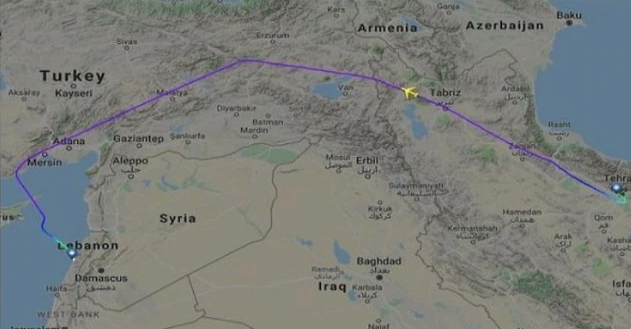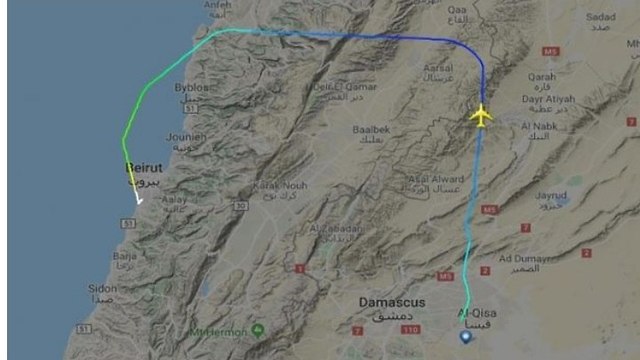
Report: Iranian civil airline suspected of smuggling weapons to Lebanon
Western intelligence officials told Fox News that Iran’s Fars Air Qeshm was detected conducting its flights following irregular flight routes, allegedly meant to avoid detection; ‘The Iranians are trying to come up with new ways and routes to smuggle weapons from Iran to its allies in the Mideast.’
The officials told Fox news they had uncovered the unusual routes that Iran apparently took to try avoiding detection.
Two rare and unusual Qeshm Fars Air flights were identified from Tehran to the international airport in Beirut during the past two months.
According to Fox News, one of the flights in which a Boeing 747 that departed on July 9 from an air force base in Tehran, stopped for a short layover at the international airport in Damascus, continuing with a rather “uncharacteristic flight path” to the Beirut international airport and landing at about 4 pm in Lebanon.
Fars Air Qeshm halted its activity in 2013 amid administrative failures, but restarted its operation in March 2017. Among the members of the company’s board are three Revolutionary Guards members: Ali Naghi Gol Parsta, Hamid Reza Pahlvani and Gholamreza Qhasemi.
A Mideast intelligence official who asked to remain anonymous told Fox News, “The Iranians are trying to come up with new ways and routes to smuggle weapons from Iran to its allies in the Middle East, testing and defying the West’s abilities to track them down.”
US and Israeli officials, as well as other western intelligence sources, have presented evidence that Iran has operated weapons manufacturing facilities in Lebanon, Syria and Yemen.
Last week, the Reuters news agency reported that Iran had transferred short-range ballistic missiles to its Shiite allies inside Iraq in recent months, citing Iranian, Iraqi and Western sources.
The move is meant to give Tehran the means to hit regional foes, the sources said, and would place Israel within direct striking ditance.
The Zelzal, Fateh-110 and Zolfaqar missiles in question have ranges of about 200 km to 700 km, putting Saudi Arabia’s capital Riyadh or Tel Aviv within striking distance if the weapons were deployed in southern or western Iraq.
Tehran and Baghdad formally denied that report.
A senior Israeli official said Tuesday in response to the military cooperation agreement signed between Tehran and Damascus that the “IDF will continue operating with full determination against Iran’s attempts to transfer military forces and weapons systems to Syria.”
Source: YNET News

